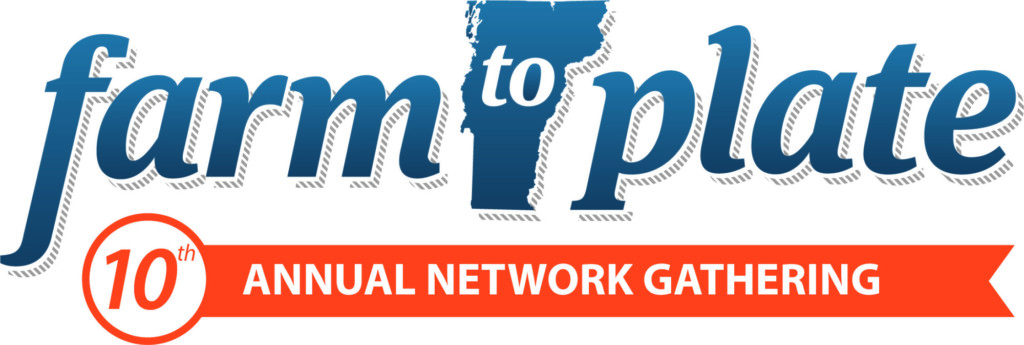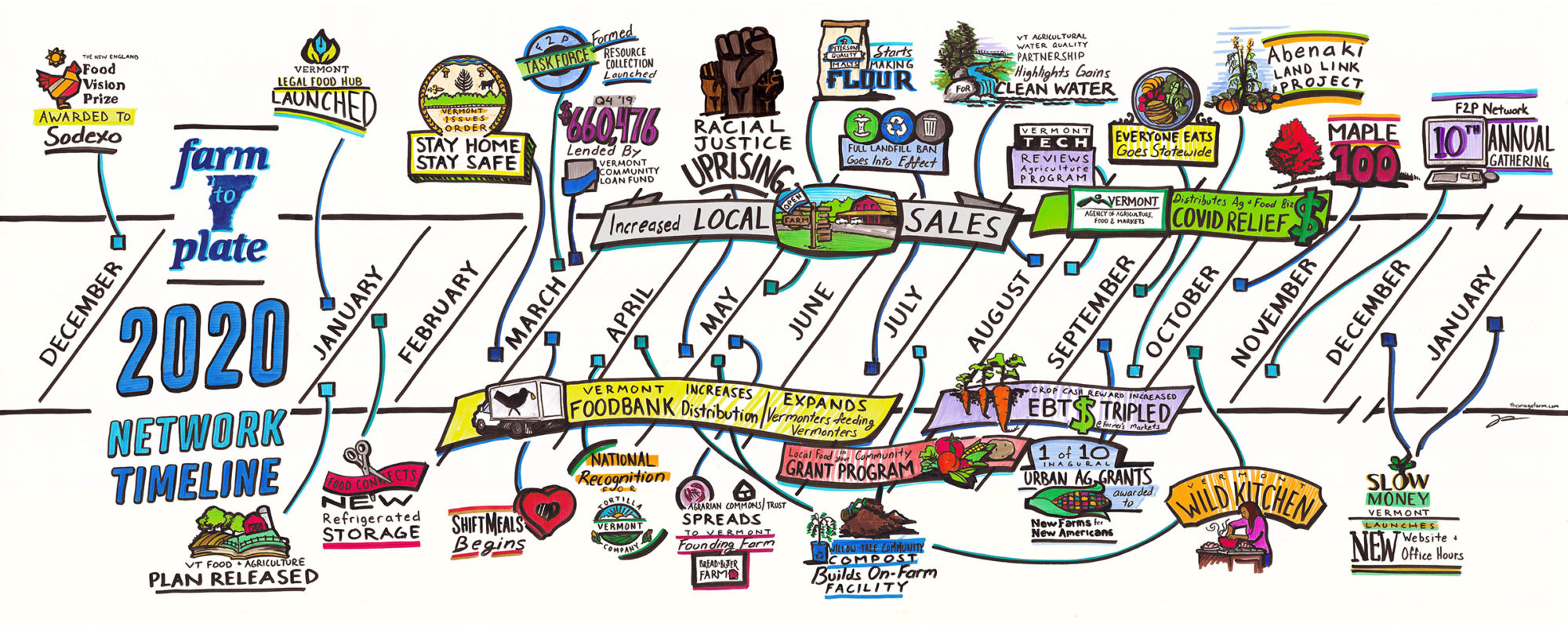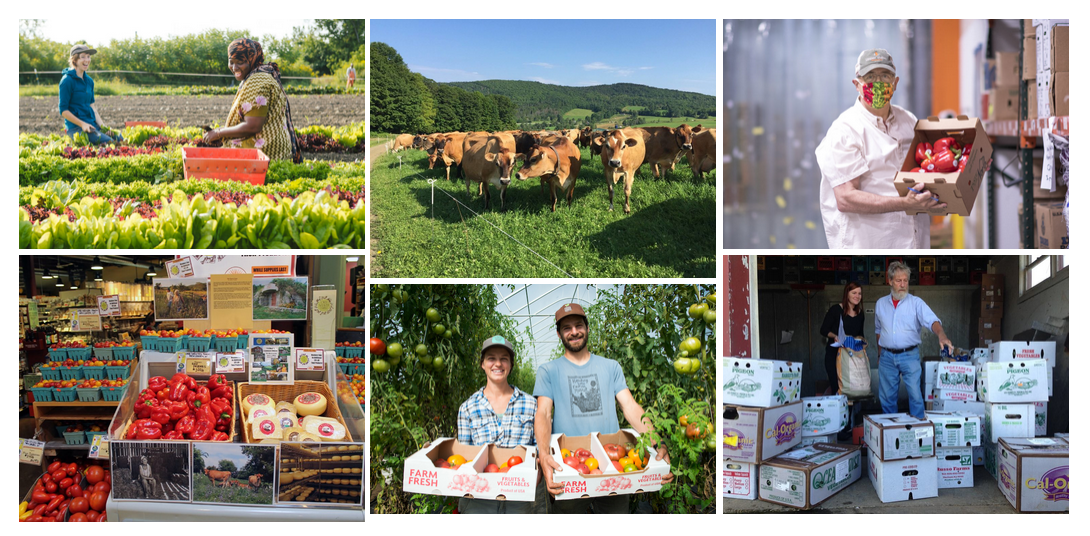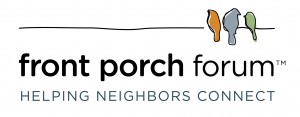2020 Vermont Farm to Plate Gathering


This year’s Gathering may be virtual, but it was no less important! This year marks a period of transition with the closing of the first 10 years of Farm to Plate and the beginning of the next ten years. Together as a Network we took a first glimpse at the next 10-year strategic plan – it’s vision, goals, and objectives – and in breakout sessions dove into priority issues that have emerged through stakeholder engagement and public input to determine the ways in which we’ll collaboratively work together to bring our shared vision to fruition. We also heard stories of adaptation and transition in the food system during COVID-19, and reflected upon what we can learn and apply from them to the next decade of food system development.
We are thrilled that over 270 attendees joined us at this year’s virtual Gathering. It certainly looked different than it has in the past, but we are thankful we were still able to get together to discuss Vermont’s food system in a meaningful way. If this was your first year attending, WELCOME!
We would like to give huge thanks to Farm to Plate Sponsors. Your partnership enabled so many things, including scholarships for Gathering attendees and much needed updates to the Farm to Plate website. THANK YOU!
Thank you all so much for joining us in this new type of Gathering. We hope to see you in person next year!
Thursday, November 12, 2020
Day One
Opening Remarks and Plenary Panel
Opening Remarks: Jake Claro, Vermont Sustainable Jobs Fund
Plenary: Stories of adaptation, transition, and what they say about the future of our food system.
Plenary Panel: Andrew Peterson, Peterson Quality Malts; Cat Buxton, VT Healthy Soils Coalition; Amber Arnold and Naomi Deyoe, Susu Healing Collective & SUSU commUNITY Farm; Erica Lynch, Babette’s Table
Breakout Sessions
Click Here to Access Related Farm to Plate 2.0 Briefs
- Creating a Climate and Environmentally Resilient Food System
- Farm Succession, Future Farmers, and Securing the Working Landscape
- Strengthening our Regional Food Security and Increasing Food Access For All
- Wholesale & Regional Market Development – Addressing the Intersection of Consumer Demand, Marketing, and Distribution to Access Major Metro Markets
- POSTPONED UNTIL A LATER DATE – Addressing Systemic Racism and Racial Equity in the Food System –
This session has been postponed, and will be held as a stand-alone convening at a later date. The plan for this session was to present the Racial Equity brief in development for the next Farm to Plate Strategic Plan, and use the findings and recommendations from the brief to frame and guide discussion for how the Farm to Plate Network collectively can address racial equity and systemic racism over the next 10 years. However, more time is needed to get greater representation and input from the BIPOC community into the brief before feeling confident and comfortable presenting on it publicly. Thank you for understanding.
Breakout Sessions-Creating a Climate and Environmentally Resilient Food System
Creating a Climate and Environmentally Resilient Food System
Description: Vermont will face considerable disruption to the local food system, including farm profitability and viability because of climate change. In addition, COVID-19 has given us a glimpse of the significant impacts climate change will have on global food production and supply chains, intensifying the need to increase the resilience of Vermont farming and local food systems and maintain our agricultural land base. With rising awareness of the need to address climate change impacts on our food system, Vermont agriculture is also experiencing an explosion of momentum around the concept of Payment for Ecosystem Services (PES) in parallel with ever increasing public concern about water quality. In this session, using content from the Climate Change, Water Quality, and PES briefs, we’ll explore how Vermont’s food system can become more climate and environmentally resilient, and identify priority actions the Farm to Plate Network can take to advancing this goal.
Facilitators: Joshua Faulkner, UVM Center for Sustainable Agriculture; Alissa White, UVM Agroecology and Livelihoods Collaborative
Breakout Sessions- Farm Succession, Future Farmers, and Securing the Working Landscape
Farm Succession, Future farmers, and Securing the Working Landscape
Description: Vermont is facing a dramatic shift in the agricultural sector due to economic and demographic changes. Over the next five years, as many as 300 Vermont farms may change hands as existing farmers retire. New and beginning farmers face a number of challenges including shifting markets and production models, increased risk due to climate change, and barriers to accessing land. If managed strategically, farm transfers could lead to the next generation of vital farms and strengthen Vermont’s rural economies. If not, land farmed for generations could sit fallow, become less productive, or be lost to development. In this session, using content from the Supporting Future Farmers, Farm Conservation, and Succession briefs, we’ll identify priority actions for the Farm to Plate Network to take in securing the working landscape for the future.
Facilitator: Sam Smith, Intervale Center
Breakout Sessions- Strengthening Our Regional Food Security and Increasing Food Access For All
Strengthening Our Regional Food Security and Increasing Food Access For All
Description: All Vermonters have a right to healthy, affordable food, not only today but in times of crisis, regardless of their life circumstances. The COVID-19 pandemic revealed the benefit of a thriving agricultural economy in buffering national food supply chain disruptions, particularly for those already struggling to obtain adequate food. In order to reduce climate and pandemic-related risks to our food security, and to protect the most vulnerable, we need to reorient a significant part of our food production to the regional level. Coordinated, statewide action is needed to ensure food security across Vermont, in times of crisis and times of calm, for every Vermonter. This session, using content from the Food Security brief and the Food Access and Farm Viability brief, will explore priority actions for feeding Vermont and the role that the Farm to Plate Network can play.
Facilitators: Becka Warren, Vital Communities/Vermont Sustainable Jobs Fund; Jennie Porter, NOFA-VT
Breakout Sessions- Wholesale and Regional Market Development- Addressing the Intersection of Consumer Demand, Marketing, and Distribution to Access Major Metro Markets
Wholesale & Regional Market Development-Addressing the Intersection of Consumer Demand, Marketing, and Distribution to Access Major Metro Markets
Description: Metropolitan markets within driving distance of Vermont have long captured the attention of Vermont farms, food businesses, and food system organizations. The allure exists for good reason – with nearly 50 million people and 18,000 grocery stores within a 6-hour drive (330 mile radius from Montpelier), regional metro markets hold immense opportunity to support the growth and viability of our farms and food businesses. Yet, accessing and competing in these markets is not without challenges, requiring significant marketing investment and acumen along with reliable and efficient distribution to move product that is at a premium for many of the smaller farm and food businesses operating in Vermont. In this session, using content from the Major Metropolitan Markets, Consumer Demand, and Distribution briefs we’ll explore the key issues impacting metro market access, and work to identify priority actions the Farm to Plate Network can take to break down barriers and capitalize on opportunities.
Facilitators: Jake Claro, Vermont Sustainable Jobs Fund; Jean Hamilton, Shift Meals; Lauren Masseria, Vermont Agency of Agriculture, Food and Markets
Closing and Reflections
Closing and Reflections- Jake Claro, Vermont Sustainable Jobs Fund
Friday, November 13, 2020
Day Two
Welcome Back
- Welcome Back, Opening Remarks: Jake Claro, Vermont Sustainable Jobs Fund
- Reflections: Anson Tebbetts, Secretary of Vermont Agency of Agriculture, Food, and Market
Breakout Sessions
Click Here to Access Related Farm to Plate 2.0 Briefs
- The Future of Dairy – Cows, Goats, Cheese, Markets, and the Environment
- Pathways to Diversification – Growing Our Ag-Portfolio through Technical Assistance, Supply Chain Development, Policy, and Financing
- The Future of Direct Sales – Securing Strong Foundations and Nurturing New Beginnings
- The Next Decade of Ag and Food System Literacy and Education
- Building Coalitions Beyond the Food System – Healthcare, Childcare, Racial Equity, and Workforce Development
Breakout Sessions- The Future of Dairy- Cows, Goats, Cheese, Markets, and the Environment
The Future of Dairy- Cows, Goats, Cheese, Markets, and the Environment
Description: For generations, Vermont has been defined by dairy, an industry that has an economic impact of $2.2 billion annually and adds nearly $3 million in circulating cash daily. Wherever you are in the state, and whomever you meet, you are not far removed from the dairy sector and the socio-economic impacts stretch well beyond the farm gate. Undoubtedly the industry is undergoing a difficult transformation – environmental concerns and low milk prices continue to be a struggle for many dairy farmers, and as the current dairy crisis roils the industry, Vermont is rapidly losing the highest-value use of the working landscape, putting the agricultural land base at risk of permanent loss. Yet, strong foundations and bright spots remain for transformation, with prospects for grass-based dairy products, cheese, and goat dairying on the horizon that point to dairy having a strong ongoing influence on Vermont’s agricultural economy and landscape. In this session, using content from the Dairy, Cheese, and Goat briefs, we’ll discuss what the future of dairy over the next 10 years in Vermont may look like, and identify how Farm to Plate and the food system can aid the stabilization, revitalization, and diversification of the dairy industry.
Facilitators: Regina Beidler, Organic Valley Coop; Laura Ginsburg, Vermont Agency of Agriculture, Food and Markets; Eliza Leeper, Vermont Creamery
Breakout Sessions- Pathways to Diversification – Growing Our Ag-Portfolio through Technical Assistance, Supply Chain Development, Policy, and Financing
Pathways to Diversification – Growing Our Ag-Portfolio through Technical Assistance, Supply Chain Development, Policy, and Financing
Description: Vermont agriculture sees itself at a critical juncture of transition and transformation. It is a time of both significant challenges and opportunities, in part defined by a growing need to diversify Vermont’s “portfolio” of production by building out new agricultural and food industries that can thrive at scale alongside Vermont’s mature dairy industry. Though Vermont has established a strong network of agricultural and food business technical assistance, additional effort, investment, and personnel are needed to bring more of our agricultural industries to scale and maturity, and keep up with the rapidly evolving needs of the sector. In addition, significant capital investment is needed to develop these industries and keep existing and emergent farm and food businesses competitive, while also enabling transfers of land and businesses from one generation to the next. And Vermont’s food system policies need to evolve in a way that continue to benefit the public at large while also supporting Vermont agricultural and food producers to live healthy lives, produce high-quality food, and operate thriving businesses in their communities. Using content from the Business and Technical Assistance, Access to Capital, and Agriculture and Food Policy briefs, this session will focus on what’s needed at the intersection of technical assistance, financing, and policy to support the transition of our production portfolio from one that is heavily reliant on one commodity to one that is populated by multiple viable mature agricultural industries.
Facilitator: Ellen Kahler, Vermont Sustainable Jobs Fund
Panelists: Ela Chapin, VHCB Farm & Forest Viability Program; Janice St. Onge, Flexible Capital Fund, L3C; Kyle Harris, Vermont Agency of Agriculture, Food & Markets
Breakout Sessions- The Future of Direct Sales – Securing Strong Foundations and Nurturing New Beginnings
The Future of Direct Sales – Securing Strong Foundations and Nurturing New Beginnings
Description: Over a quarter of Vermont farms sell directly to consumers through farmers markets, Community Supported Agriculture (CSA), and other “direct market” channels. Direct markets are critical because they allow producers to capture more income for each product sold (compared to wholesale), require low up-front investment, give producers more autonomy over the products they sell, and foster customer relationships through experiential marketing (an increasingly important tactic across all industries). The trends towards consolidation and downward price pressure in wholesale markets favor larger producers and create challenges for many small to medium-scale producers, accentuating the importance of strengthening direct markets as the foundation of a working landscape of diverse farms at all scales. In this session, using content from the Direct Markets, Marketing, and Agritourism briefs, we’ll discuss what the future of direct sales in Vermont in the next 10 years might look like and what role the Farm to Plate Network can play.
Facilitators: Erin Buckwalter, NOFA-VT; Alissa Matthews, Vermont Agency of Agriculture, Food and Markets; Lisa Chase, University of Vermont Extension
Breakout Sessions- The Next Decade of Ag and Food System Literacy and Education
The Next Decade of Ag and Food System Literacy and Education
Description: For Vermonters to be knowledgeable local food consumers and agricultural advocates, they need food and farm experiences throughout their lives. For Vermont’s food system businesses to thrive, they must be able to overcome the workforce shortage that many report is holding back their production and growth. Starting with our earliest learners and continuing into adulthood, we need to connect the populace to the land and our farmers, teach basic knowledge and skills in food and farming, demonstrate the connection to other issues such as climate change and water quality, and develop work ethic and transferable skills. In this session, using content from the Agricultural Literacy, Agricultural Literacy K-12, Education, and Workforce briefs, we’ll explore what agricultural and food literacy and education should look like at all ages, and how the Farm to Plate Network can support this work.
Facilitators: Betsy Rosenbluth, Vermont FEED/Shelburne Farms; Dana Hudson, Shelburne Farms
Breakout Sessions- Building Coalitions Beyond the Food System – Healthcare, Childcare, Racial Equity, and Workforce Development
Building Coalitions Beyond the Food System – Healthcare, Childcare, Racial Equity, and Workforce Development
Description: Vermont’s food system intersects with many other complex systems, and moving the needle on food access, farm viability, and equity depends on building cross-sector coalitions. This session will dive into several topics that require a partnership “beyond the food system,” then ask what it could look like for the Farm to Plate Network to engage in intersectional work in the next ten years.
Facilitators: Heidi Lynch, Vermont Farmers Food Center; Graham Unangst-Rufenacht, Rural Vermont
Closing and Reflections
Closing & Reflections- Jake Claro, Vermont Sustainable Jobs Fund

Thank You to Our Sponsors
Thank you to our many Farm to Plate Sponsors for making Farmer Scholarships a possibility for this event.
Dairy Level Sponsors:
Maple Level Sponsors:
Apple Level Sponsors:
Butternut Mountain Farm
Cabot Creamery Cooperative
Cellars at Jasper Hill
Chelsea Green Publishing
City Market
Clean Yield Asset Management
Commonwealth Dairy (Green Mountain Creamery)
Efficiency Vermont
Grow Compost of Vermont
Lamoille Economic Development Corporation
NOFA-VT/Vermont Organic Farmers
Organic Valley
Shelburne Farms
Vermont Agricultural Credit Corporation Loan Program
Vermont Land Trust
Yankee Farm Credit
Center for Agriculture and Food Systems at Vermont Law School
Blueberry Level Sponsors:
Center for the Environment at Saint Michael’s College
Hunger Mountain Coop
Intervale Center
Pete’s Greens
Snug Valley Farm
Vermont Housing and Conservation Board Farm & Forest Viability Program
Seedling Level Sponsors
If you are interested in becoming a sponsor of Vermont Farm to Plate, please visit
https://www.vtfarmtoplate.com/support-us for more information.
Vermont’s Food System
Vermont’s farm to plate food system plan is the most comprehensive in the country and the only state that has complete government engagement. Vermont’s food system generates more than $11.3 billion in economic output and supports more than 64,000 jobs and 11,500 businesses. From 2007 to 2017, Vermont food system economic output expanded 48%, from $7.5 to $11.3 billion. From 2009 to 2018, net new food system employment increased by 6,529 jobs (11.2%).
Our Role
The Vermont Sustainable Jobs Fund serves as the administrator and backbone organization to the Farm to Plate Network and executes the analysis and goal tracking of the Farm to Plate Strategic Plan implementation. As a backbone organization, we guide vision and strategy; support aligned activities and facilitate dialogue across the network; establish shared measurement practices; mobilize funding; manage communication; provide professional development and leadership training opportunities; build public will; and coordinate community outreach.
More than 350 members of the Farm to Plate Network are working together to create a viable, sustainable, and resilient food system which produces and distributes our food and generates positive economic, environmental, and social impact in Vermont’s economy.







